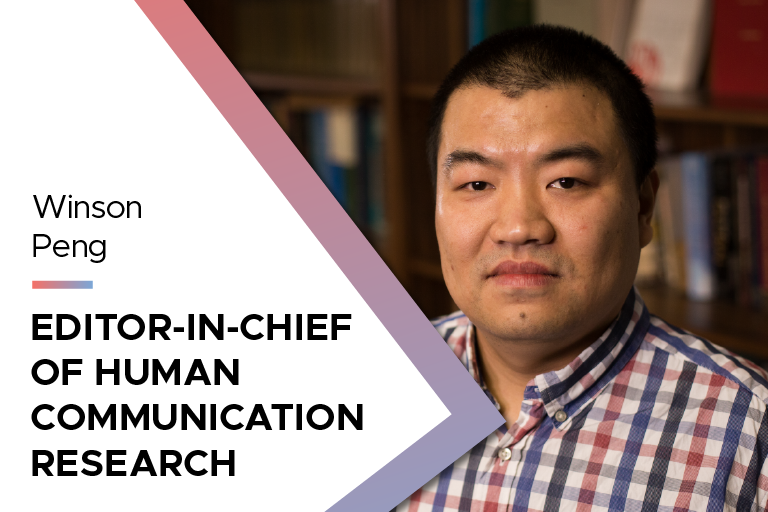On the golden anniversary of its founding, a prestigious academic journal will be edited by a Spartan.
Winson Peng, a professor in the Department of Communication, has been selected as the next editor-in-chief of Human Communication Research, or HCR. The journal is described as having a “broad social-science focus (that) offers important applications for scholars in psychology, sociology, linguistics and anthropology, as well as areas of communication studies.” It’s published by the International Communication Association, or ICA.
“HCR is widely recognized as one of the flagship journals in the field of communication,” Peng said. “The inaugural editor-in-chief of HCR was from this department; Gerald R. Miller, starting in 1974. Over the past 50 years, HCR has become a premier venue for publishing groundbreaking communication research. I’m very honored to be part of this.”
Peng’s research focuses on computational social science, health communication, audience analysis and political communication. He served as an associate editor for the Journal of Communication for two years prior to his selection as editor-in-chief of HCR. In his new role, he’ll be tasked with upholding and elevating the stature of HCR by publishing innovative and rigorous theory-driven studies that advance our understanding of human communication processes and effects across diverse domains and contexts.
At the heart of his editorial vision for HCR is a commitment to prioritizing theoretical exploration. His goal is to elevate the theoretical discourse within HCR by valuing submissions that not only demonstrate innovation but also deeply engage with the theoretical foundations of communication phenomena. The pursuit of theoretical excellence will guide editorial decisions of the new editorial team, ensuring that each accepted submission makes a meaningful contribution to the theoretical landscape of communication research.
“I plan to introduce a new feature to the journal where, for each accepted publication, we will invite the authors to write a brief ‘public significance statement,’” Peng said. “This will help the general public grasp the implications of our research findings and understand how they can be applied in everyday life.”
Human Communication Research is published quarterly. The final issue of 2024 is slated for release in October. Peng says he’s transitioning into his new duties as editor-in-chief and is preparing to oversee the 2025 publication run beginning in January.
This story originally appeared on the Communication Arts and Sciences website.
